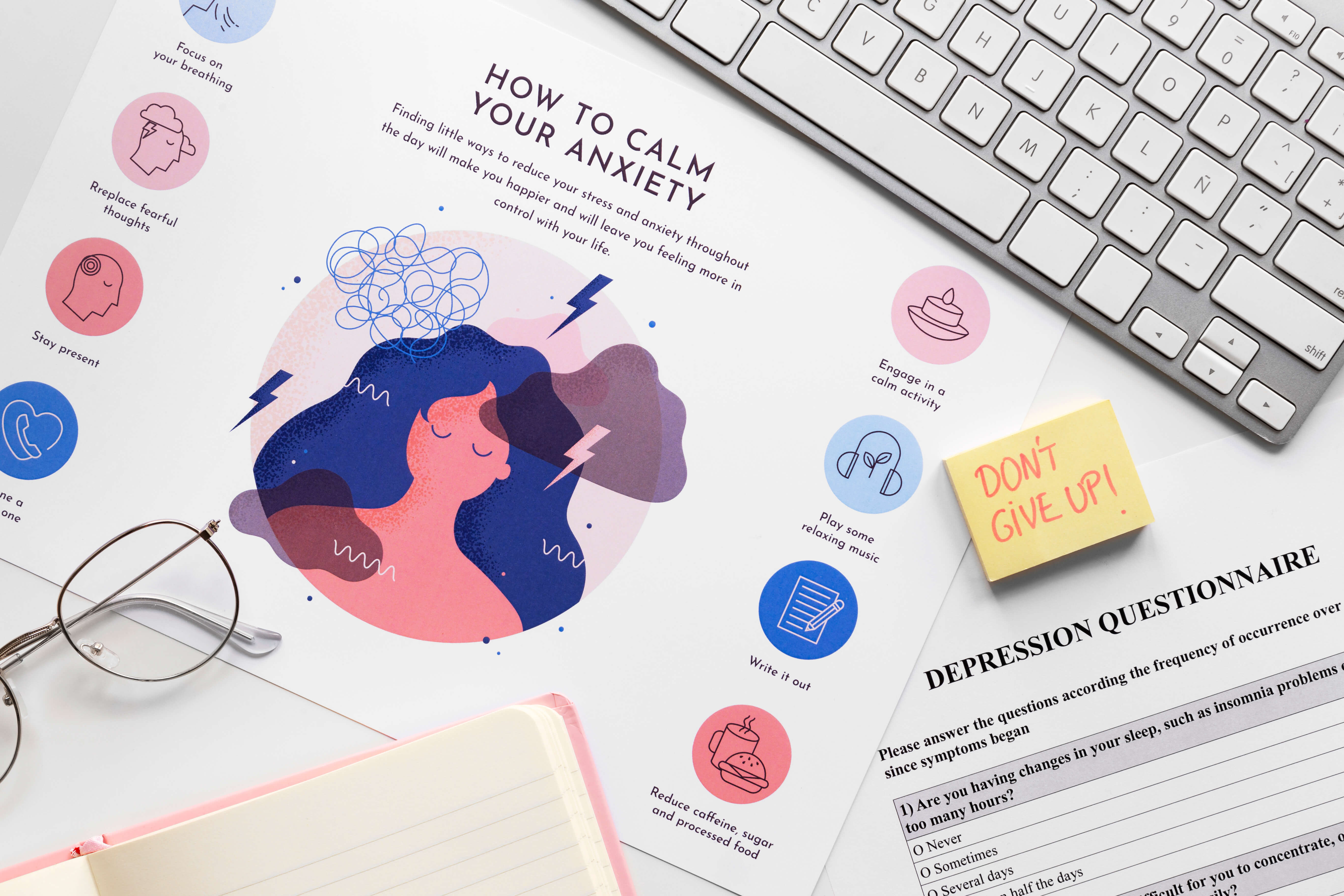- Updated on 8 July 2024
The depression anxiety and stress scale, known as DASS, is an assessment to identify symptoms of mental health disorders.
A qualified professional, such as a Malaysian counsellor or psychologist, carries out the test.
You may receive a comprehensive explanation of your mental wellness based on the DASS results, interpretations, and clinical impressions of your counsellor.
Read about the components of the depression anxiety stress scale, symptoms of the issues, and DASS diagnosis.
Depression Anxiety Stress Scale
The DASS is a tool used to assess the intensity of depression, anxiety, and stress that you may be facing.
The DASS scale is designed to identify, understand, and accurately measure these feelings. It is used for research purposes and by clinicians to diagnose mental disorders.
The depression anxiety stress scale has three parts, with 14 questions each. Each part assesses different types of symptoms.
Part 1: The depression section identifies feelings of sadness, hopelessness, and losing interest in activities previously enjoyed.
Part 2: The anxiety section identifies signs of fear, overthinking, panic, and feelings of worry.
Part 3: The stress section measures how stressed or emotional a person is, their mood swings, and the impact of stress on daily life.
You may be asked to answer the questions based on how you have felt in the past week. Your psychologist may advise you to use a scale of 0 to 3. 0 indicates no distress, and 3 indicates severe distress.
The shorter version of the DASS is the DASS21, which only has 7 questions in each section.
The DASS, previously known as the self-analysis questionnaire (SAQ), is reliable and helpful in measuring mental wellness.
Components of the Scale
The three components of the scale are as follows:
- Depression scale: Measures aspects such as dysphoria (ie dissatisfaction in life), hopelessness, feeling sad for no reason, anhedonia (ie inability to feel joy), and inertia.
- Anxiety scale: Measures hyperarousal, panic, freeze or flight modes, impacts on skeletal muscle, situational anxiety, subjective experience of anxiety, and identifies signs of any other anxiety disorder.
- Stress scale: Measures signs such as difficulty relaxing, burnout, mental exhaustion due to overwork (either in the workplace or personal life), feelings of anger and irritability, impulsiveness, and levels of impatience.

Symptoms of Stress, Anxiety & Depression
The depression anxiety stress scale can help you identify several different symptoms.
The symptoms of all three disorders can manifest through physical, emotional, and psychological signs.
For example, sleep is commonly affected if you have stress, anxiety, or depression. Similarly, your mood and control over your emotions may also be affected.
Some signs, however, are specific to each disorder. Depression could indicate low moods, whereas anxiety could indicate constant mood swings or feeling erratic.
Note that the symptoms may be different for everyone. Hence, it is important to have an open discussion with your depression counsellor to identify how the symptoms manifest in your life specifically.
Common signs of stress are:
- Headaches and chronic muscle pain
- Feeling exhausted and tired
- Getting annoyed, upset, or angry easily
- Troubles with sleeping too much or not enough
Symptoms of anxiety include:
- Fast heart rate
- Sweating and shaking
- Feeling worried or emotional all the time
- Having gastrointestinal and digestive issues
- Negative thought patterns
Symptoms of depression include:
- Lack of joy or enjoyment in life
- Lack of appetite
- Low moods
- Feeling bad and underconfident about oneself
- Lack of decision-making skills
- Thoughts of self-harm or suicide
The DASS and Diagnosis
The depression anxiety stress scale helps differentiate the symptoms of depression, anxiety, and stress.
Although some of the symptoms may appear similar, the core cause, manifestation of signs, and impact on daily life may be quite different.
For example, on the one hand, people with social anxiety may struggle to make friends and have a fear social interactions and situations.
On the other hand, people with depression may interact comfortably but may struggle with isolation, fatigue, and sadness.
Hence, when a professional administers the DASS tool, they can assess the intensity of the emotional distress and offer an effective treatment plan to overcome the issue.
The scale does not consider several factors. This is where your Malaysian Therapist can help you.
After assessing your results, your Therapist may look into several other factors contributing to your distress. These factors include:
- Your childhood history
- Medical history
- Interpersonal relationships
- Family history
- Personality type
- Attachment styles
- Thought process
- Beliefs
- Cultural upbringing
After completely interpreting the results, you may receive a comprehensive insight into your mental health and the steps you can take to improve your wellness.
The DASS provides a dimensional insight into psychological disorders. In other words, the difference in emotional experiences is seen as a difference in the intensity rather than segregating it into a distinct category of disorders.
Consequently, while the DASS provides valuable data on the severity of symptoms, it does not directly inform discrete diagnostic categorisations like those found in the DSM or ICD.
Nonetheless, you can gain more clarity about yourself with the help of a professional.
If you want to get diagnosed or simply wish to improve your quality of life, TYHO Malaysian counsellors can help you.
Takeaway
The Depression Anxiety and Stress Scale (DASS) is a tool used for identifying symptoms of depression, anxiety, and stress.
A Malaysian mental health professional may administer the tool to provide a holistic therapeutic plan. The scale has 3 sections, each with 14 questions focusing on different symptoms.
There is also a shorter version, DASS21, with 7 questions per section. The scale helps differentiate the symptoms of each disorder, although they might overlap. The DASS can help you understand the severity of your symptoms and better grasp your emotional distress, but it doesn’t replace formal diagnostic categories.
Talking to a Malaysian Therapist can be helpful for a detailed evaluation and guidance.













